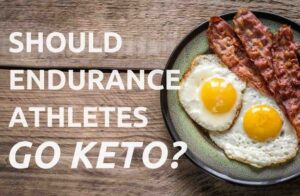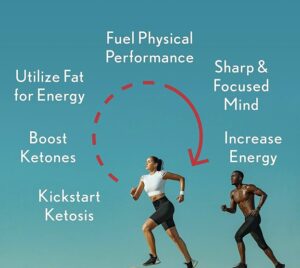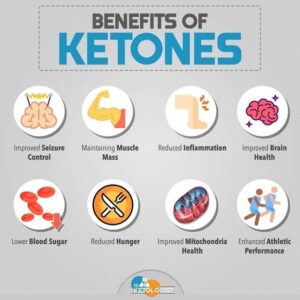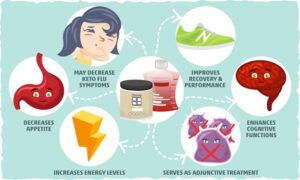ARE EXOGENOUS KETONES BENEFICIAL FOR ENDURANCE RUNNERS?

There are three sources of calories, namely carbohydrates, fat and protein. Carbohydrates are the primary fuel for most runners, but our bodies can’t store adequate amounts of carb fuel. That’s the reason why bonking or hitting the wall happens for some during marathons and ultramarathons. There is a way out of this problem as a fourth energy source exists called ketones. We have all heard of a diet called the ketogenic diet, which requires the consumption of vast amounts of fats upwards of ninety per cent. But can ketones help runners as efficiently as glucose?

Emerging interest in the metabolic influence of ketogenic diets on athletic performance began in the early 1980s when untrained and trained athletes could maintain or improve performance even without sufficient dietary carbohydrates. Exploration of Ketogenic diets as a metabolic tool for obesity, epilepsy, inflammation, PCOS, diabetes, cancer etc., is also on.
Our bodies prefer fat when resting or exercising at low or moderate intensities. Still, our bodies need rapid energy during higher exercise intensities, which requires swift synthesis of ATP from intramuscular glycogen. The intramuscular glycogen stores represent only one per cent of the total energy held within the body; hence this gets rapidly depleted during intense exercise resulting in muscle fatigue.

Our human bodies do not produce ketones under normal circumstances. We make ketones while fasting or consuming either empty diets or ultra low carb diets. During such times, the body has to rely on stored fats. When the body starts burning fats for energy, ketones get produced. The body can use such ketones for energy. Ketone is a good fuel for the brain and helps runners perform better. For the athletes, who cannot follow low carb high-fat diets, the way out is through supplementation with exogenous ketones. Exogenous ketones appear to decrease dependence on intramuscular glycogen, even during moderate exercise intensities, by promoting ketone or fat oxidation. Given the correlation between intramuscular glycogen and endurance exercise, exogenous ketones become relevant as an energy source during activities that are not intermittent but prolonged, like endurance exercise.

Many ultra-marathoners have adopted ketogenic diets and have improved their performance due to the metabolic flexibility of adaptation to ketosis. All this may be fine, but adhering to ketogenic diets is challenging and cumbersome, although some who have cultivated it have stuck to it for years and have lost a ton of weight. As mentioned earlier, there is a way out for those who find it difficult to follow a ketogenic diet. They can buy such exogenous ketones as a supplement from stores. Such supplements boost the level of ketones in the blood, just like it would happen when one is on a ketogenic diet. Surprisingly, such supplements in a study could produce ketones in the body even when taken alongside a sugary drink. However, several other studies have revealed no impact or decline in performance due to the consumption of exogenous ketones. Studies witnessed diverse outcomes because some researchers conducted studies for races as short as 800 meters.

For athletes to reap the benefits of ketones, they must take exogenous ketones supplements half an hour before the race or event, along with water or any sports drink. The stomachs of many athletes are unable to handle the ketone drinks, so they must check whether it agrees with their system a few days before the race or take it over a while till their system gets adapted to it. For now, the apparent benefits of ketones appear to be less glycogen use and better lactate levels.

Further, ketone esters were used in some studies, while in others, ketone salts were used by researchers. Another interesting finding which has emerged is that ketone supplementation improves post-race recovery by enhancing the activity of mTORC1, which signals mTORC1 leading to muscular growth and healing. Hence, exogenous ketones may not only improve the athlete’s performance in endurance activities but also aid in post-race recovery by activating mTORC1 activity.

 Dr. K. Jayanth Murali is based at Chennai, India. One fine day, he decided to substitute smoking with running. Now an avid runner, he has never looked back since then. He has done a bunch of marathons and half marathons over the years. When he is not working, he is usually running or helping people discover the endorphins of endurance.
Dr. K. Jayanth Murali is based at Chennai, India. One fine day, he decided to substitute smoking with running. Now an avid runner, he has never looked back since then. He has done a bunch of marathons and half marathons over the years. When he is not working, he is usually running or helping people discover the endorphins of endurance.

